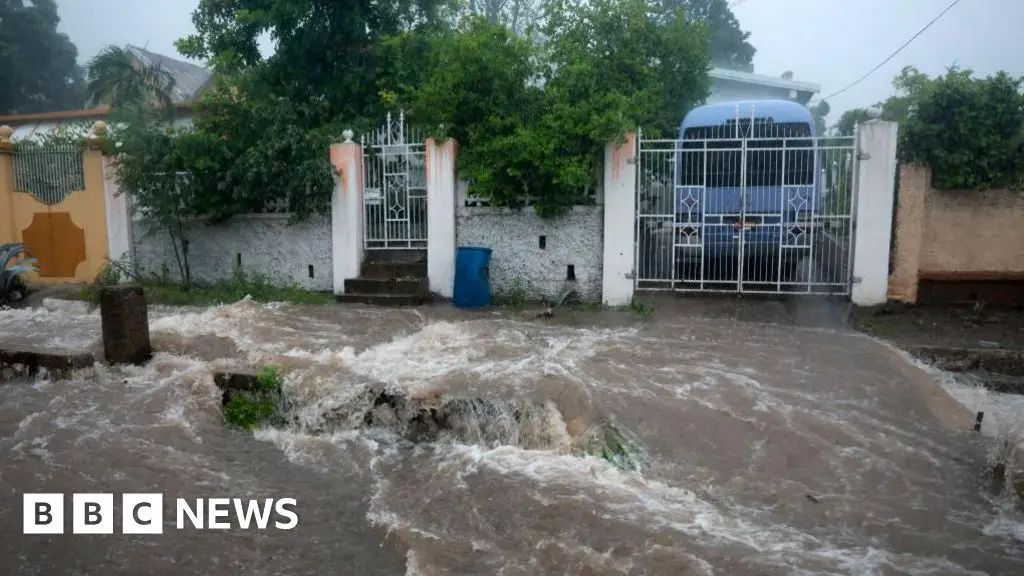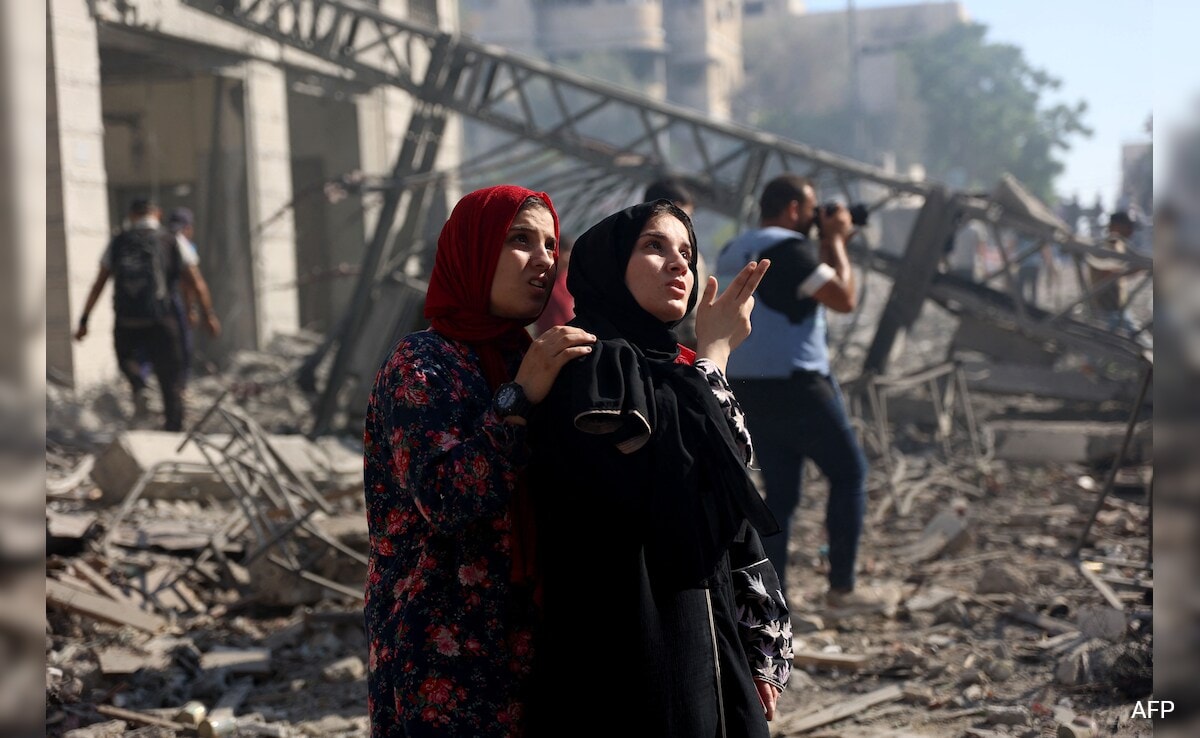
Image source, Getty Images
- Author, Nick Davis
- Role, BBC News, Kingston
-
Hundreds of thousands of homes in Jamaica are without power, after Hurricane Beryl thundered along the island’s southern coast on Wednesday night.
The category four storm – one of the most powerful to ever hit the country – has brought more than 12 hours of heavy rain, prompting concerns about flash flooding.
An island-wide curfew was extended until 06:00 local time (11:00 GMT) on Thursday, and while the hurricane warning has been cancelled, it has been replaced with a flash flood watch.
Once the sun rises and the curfew is over, residents will be able to go outside and get a real idea of the damage.
Beryl has now weakened to a category three storm, and is rolling towards the Cayman Islands and southern Mexico, the US National Hurricane Center (NHC) reports.
Predicted path of Hurricane Beryl
But it has left a trail of devastation across the Caribbean, and caused the deaths of at least seven people.
Here in the capital, Kingston, while the winds were extremely strong, they weren’t the hurricane gusts that were expected. But the hours of heavy rain are a real concern, especially on farmland where flooding has been reported.
One resident of a rural farming community told the Reuters news agency: “It’s terrible. Everything’s gone. I’m in my house and I’m scared.”
“It’s a disaster,” said Amoy Wellington, who lives in the southern parish of St Elizabeth.
On Wednesday night I was able to go outside briefly to move my car away from overhanging trees.
A full-length mirror was lying next to the car – it had probably blown off someone’s balcony, a reminder that unexpected objects suddenly become missiles in winds that strong.
Energy provider, JPS, said that 65% – or about 400,000 of its customers – were without power on Thursday morning.
The hurricane has delivered “a most devastating blow” to parts of the island, said the MP for St Elizabeth South Western.
Posting on X, Floyd Green said in his constituency “significant numbers of roofs [have been] lost, houses destroyed, trees uprooted, light poles downed, almost all roads are impassable.”
Caribbean media is reporting that the UN has unlocked $4m (£3.1m) from its emergency response fund to help the recovery in Jamaica, Grenada and Saint Vincent and the Grenadines.
Prime Minister Andrew Holness thanked “first responders, essential services, security forces and good Samaritans who have assisted others in this time of crisis” on his X account.
“This storm will pass, and we will recover,” he said.
Beryl is now thundering towards the Cayman Islands, where “strong winds, dangerous storm surge and damaging waves are expected”, the NHC warned.
The islands’ tourism minister, Kenneth Bryan, told the BBC that while most people will be able to withstand the winds, the flood waters are also the main concern there.
Hurricane Beryl has already caused devastation in Grenada, St Vincent and the Grenadines, and northern Venezuela. At least seven people are known to have died.
The storm shocked meteorologists at how fast it intensified – taking just 42 hours to go from a tropical depression to a major hurricane.
Additional reporting by Alex Smith and Tiffany Wertheimer






